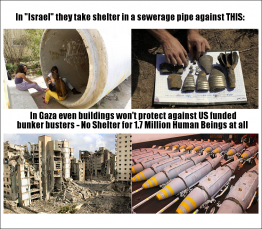PNN – Palestine News Network | 28.04.11
By Dolev Rahat/ Alternative Information Center – Despite efforts of the Palestinian Authority, the percentage of Palestinian workers employed in settlements is increasing.
While these workers suffer from conditions of exploitation, the high level of unemployment in the Occupied Palestinian Territory and the higher salary in the settlements force numerous Palestinians to find work that contradicts the aspiration to be free of the Israeli occupation.
According to data published last week by the Palestinian Bureau of Statistics, 14.2% of the Palestinian work force was employed in settlements in 2010. This is a slight rise from 2009, which stood at 13.9%. According to data from the Israeli labour rights organisation Kav Laoved, this is some 28,000 workers, of whom 18,000 have permits and are employed primarily in the settlement industrial zones., while an additional 10,000 are employed without permits, primarily in agricultural work in the Jordan Valley settlements.
 The increase in the percentage of those employed in settlements does not fit with the Palestinian Authority (PA) plan to completely prevent Palestinian labourers from working in settlements, and to render such work illegal as of 2012. Originally the PA intended to impose punishments of up to five years imprisonment and financial penalties of some US $14,000. The Palestinian Minister of Labour Ahmad Majdalani noted in December 2010 that his ministry is cooperating with the national economic office to establish a fund for loans to workers employed in settlements.
The increase in the percentage of those employed in settlements does not fit with the Palestinian Authority (PA) plan to completely prevent Palestinian labourers from working in settlements, and to render such work illegal as of 2012. Originally the PA intended to impose punishments of up to five years imprisonment and financial penalties of some US $14,000. The Palestinian Minister of Labour Ahmad Majdalani noted in December 2010 that his ministry is cooperating with the national economic office to establish a fund for loans to workers employed in settlements.
Although in 2010 there was a decline in unemployment in the Occupied Palestinian Territory, unemployment is still high at 37.8% in the Gaza Strip and 17.2% in the West Bank. This high level of unemployment certainly pressures Palestinian workers to accept whatever work is available, despite the political problematics of working in settlements.
An additional reason for the increase in the level of those employed in settlements is the large gap between the salary in the Palestinian sector and that in settlements. While the average daily salary in the West Bank stands at NIS 76.9 and in Gaza NIS 46.2, a Palestinian worker in a settlement earns an average of NIS 150 daily.
There exist large gaps between the salary of workers with permits and those without. According to data of Kav Laoved, the average daily salary of workers in the Jordan Valley is NIS 60-80 daily, similar to the average wage in the West Bank. These workers are also employed in unsafe conditions.
The Palestinian trade unions support the PA boycott of work in settlements and perceive it as a tool of resistance to the Israeli occupation. These unions do not provide support to workers employed in settlements.
Amongst workers themselves there is no one opinion concerning the boycott. Some support it and are willing to work in PA areas for a lower salary. Others oppose it, fearing they will not find alternative income. Workers express anger over the unilateral declaration of the PA, which did not consult with them.
These workers also raised the question of receiving compensation if they will leave their work in settlements. According to an examination of Kav Laoved, the chances of receiving compensation in such cases are slim.
Kav Laoved attempts to organize these workers outside of the existing unions. This includes, amongst other things, a demand for implementation of the 2007 High Court ruling that Israel labour laws apply to Palestinian workers in settlements, and that these workers must therefore be paid the legal Israeli minimum wage and social benefits. This struggle is conducted primarily through labour courts, in addition to contacts with the Ministry of Industry, Trade and Labour, responsible for enforcing labour laws. Most settlement employers claim that the Jordanian labour law applies to Palestinian workers, or that their conditions should equal those in the Palestinian market.
In one case, Palestinian workers in the Solor factory in the Nitzani Oz industrial zone near Tul Karem went on strike in October 2010, after which at least 19 workers were fired. With this, Kav Laoved notes that in recent years there has been improvement in the settlement industrial zones’ working conditions, and some of the factories even began to pay the legal minimum wage of Israel.

 April 29, 2011
April 29, 2011 
































Comments are closed.